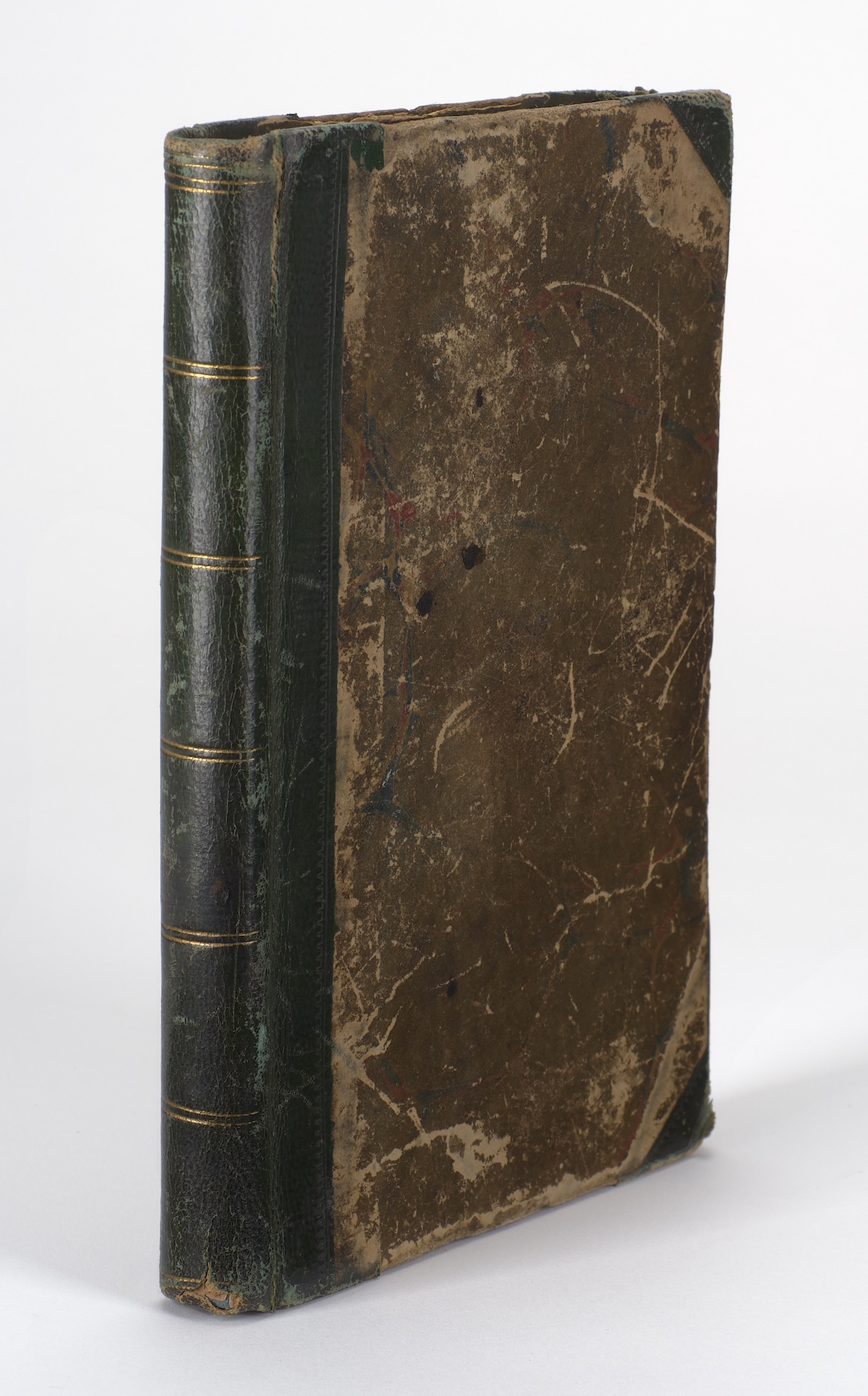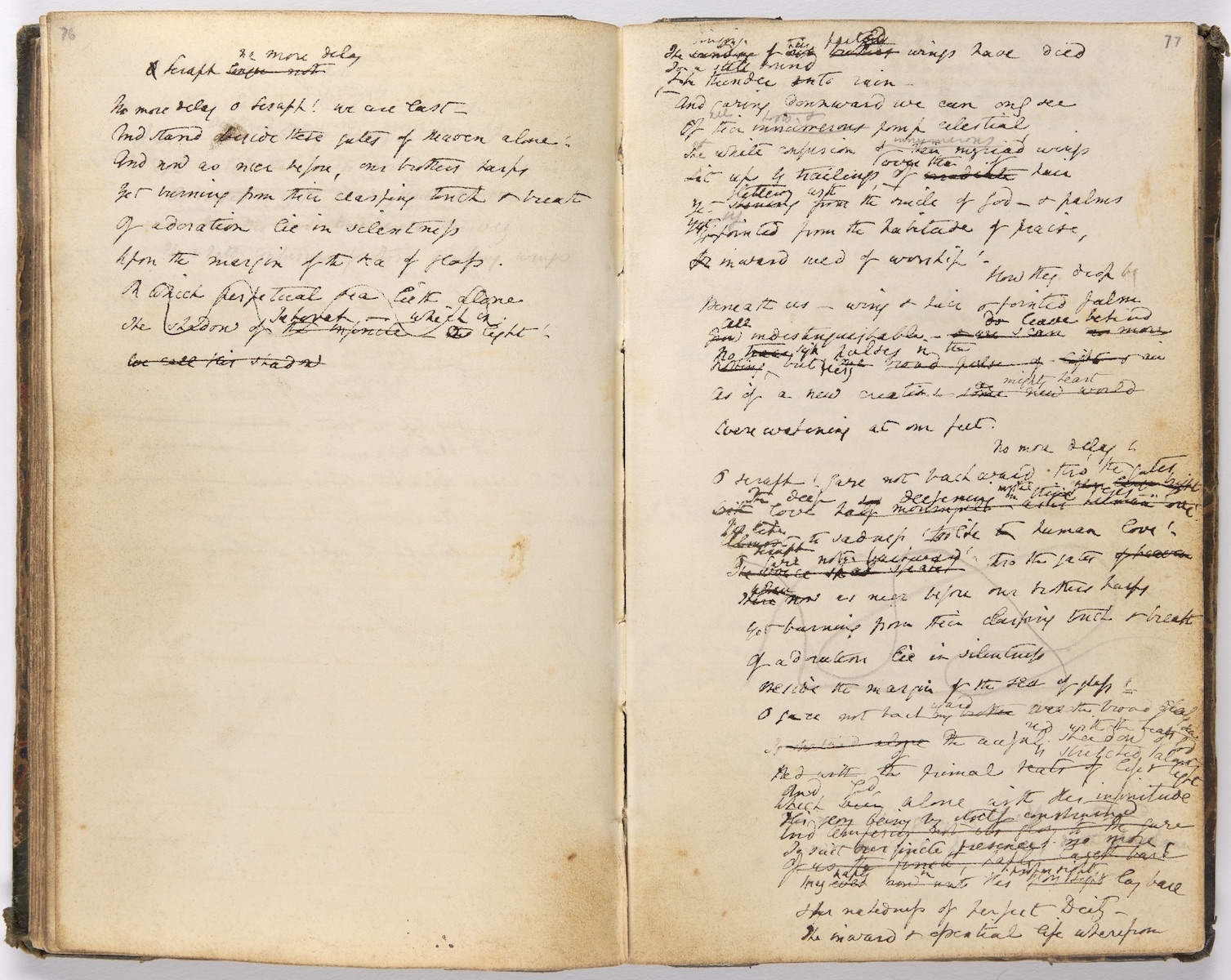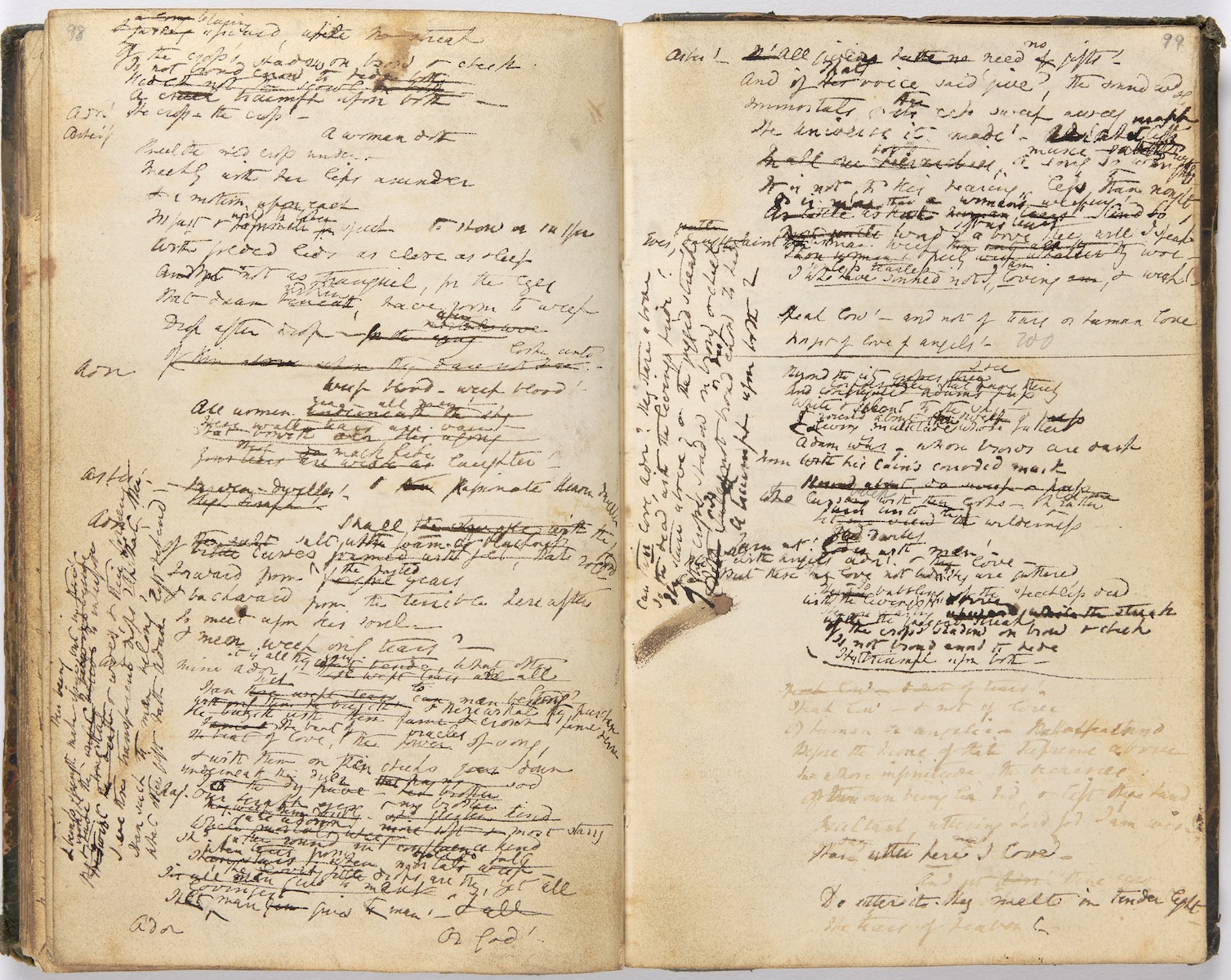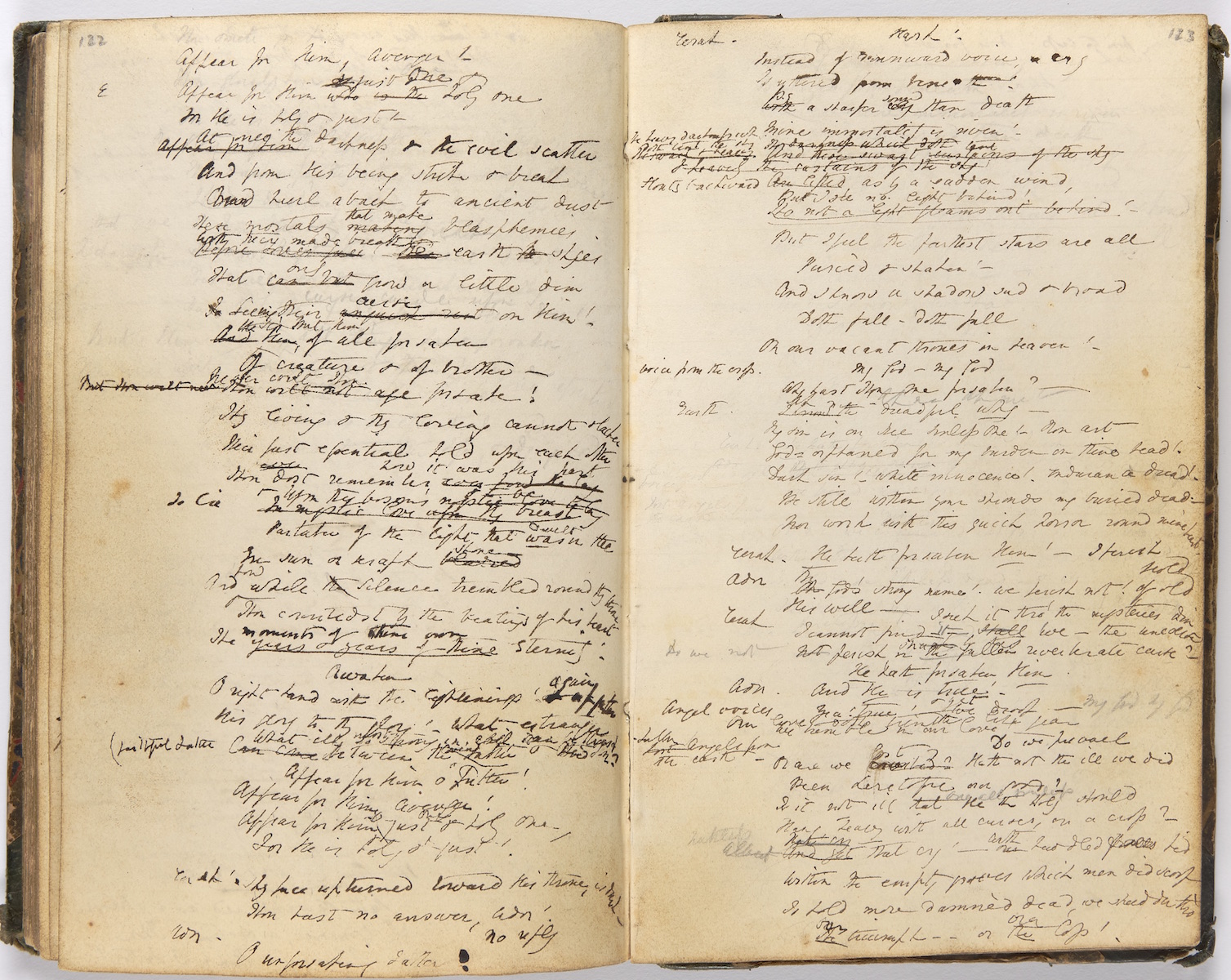the poems that brought Elizabeth Barrett fame including nine unpublished manuscript poems
[BROWNING,] ELIZABETH B. BARRETT.. Autograph manuscript notebook, the working notebook for the verses later published in The Seraphim, and Other Poems.
No Place, 1835-1837
Approximately 4850 lines, ink and pencil, on 159 pages including 8 blanks. 8vo (185 x 115 mm). Barrett’s ownership inscription on front pastedown (“E.B.B. 1837”) and additionally signed with initials by the poet on various pages. Corner of pp. 93 and 94 torn with loss, some foxing, ink stains. Contemporary half green calf and marbled papercovered boards, worn. Morocco case.
This extraordinary manuscript is Elizabeth Barrett Browning’s heavily revised autograph working notebook for The Seraphim, and Other Poems, the book that first brought her fame.
This notebook contains drafts of all of the major poems in The Seraphim, published by Saunders and Otley in 1838. This work helped to establish her as one of the most important poets of her day. In addition, the manuscript contains nine other poems that remain unpublished as well as countless otherwise unknown lines not used in the published text.
This visually dramatic notebook is crowded with Elizabeth Barrett’s manuscript revisions, making it a vital untapped source for the study of the poet’s working methods and artistic development. She has filled the notebook’s pages with her verse in her minuscule hand. Painstaking revisions reflect the intensity of her process. Many abandoned passages—some quite long—are known only from the survival of this volume.
The Seraphim was the first work that Elizabeth Barrett issued under her name (she took Robert Browning’s name when they married in 1846), apart from The Battle of Marathon, printed when she was fourteen. Leading journals gave the work substantial reviews. Barrett went from being essentially unknown to one of the most promising English poets of her generation. She soon became one of the most popular and acclaimed poets in Britain.
She laid out her approach to poetry in the preface to the published edition: “Poetry is essentially truthfulness and the very incoherences of poetic dreaming are but the struggle and the strife to reach the True in the Unknown.” For Barrett these poems represented “the first utterances of my individuality,” as she wrote to John Kenyon, a wealthy family friend and patron of the arts. Her art became all consuming. As she wrote in the 1838 Preface to The Seraphim, “I can never feel more intensely that at this moment … the sublime uses of poetry, and the solemn responsibilities of the poet
“Her poetic inspiration is the highest – we can conceive of nothing more august. Her sense of Art is pure in itself.” – Edgar Allan Poe on Elizabeth Barrett Browning
“Such a combination of the finest genius and the choicest results of cultivation and wide-ranging studies has never been seen before in any woman.” – Edinburgh Review on Elizabeth Barrett
Manuscripts of this length and quality by major nineteenth-century English and American authors are very rare in the market. It has been a decade since anything remotely comparable to the present manuscript has appeared for sale. The following comparable manuscripts were sold at auction then:
• Jane Austen, The Watsons (68 pages) £1,000,000 in 2011
• Charlotte Bronte, juvenile manuscript (20 pages) £696,000 in 2011
• Edgar Allan Poe, “For Annie” (2 pages) $830,000 in 2009
• John Keats, poetical fragment (30 lines) £181,000 in 2013
• Elizabeth Barrett, small notebook (68 pages) £242,000 in 2008
• Jane Austen, Evelyn and Catherine, or the Bower (125 pages) £132,000 in 2008
The present Elizabeth Barrett Browning manuscript, comprising approximately 4850 lines on 151 pages, is one of the finest nineteenth century literary manuscripts remaining in private hands. Manuscripts of this importance continue to be permanently removed from the market and placed in major institutions.
This is a rare opportunity to acquire a major manuscript by one of the most important authors of the nineteenth century. The unpublished poems in this manuscript are an important resource in the story of women’s literature in the nineteenth century. Virtually all literary manuscripts of this significance from this era have vanished into institutional collections.
“I love your verses with all my heart, dear Miss Barrett.” – Robert Browning to Elizabeth Barrett
Provenance: Elizabeth Barrett Barrett (later Browning); her son Robert Barrett “Pen” Browning; the estate of Tullio Romanelli, Pen Browning’s Florentine friend and estate manager; Sotheby’s London, 16 July 1984, lot 54.
$550,000






